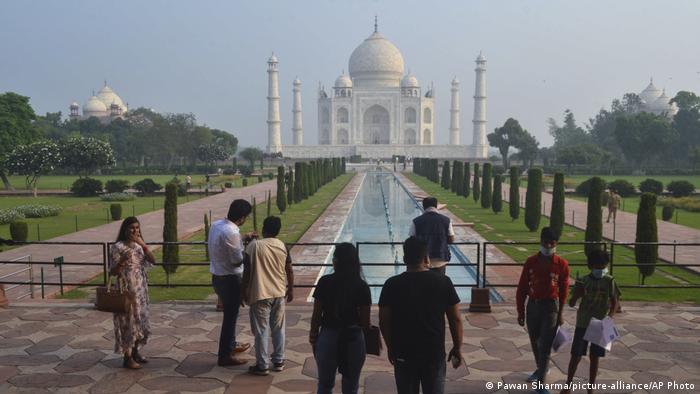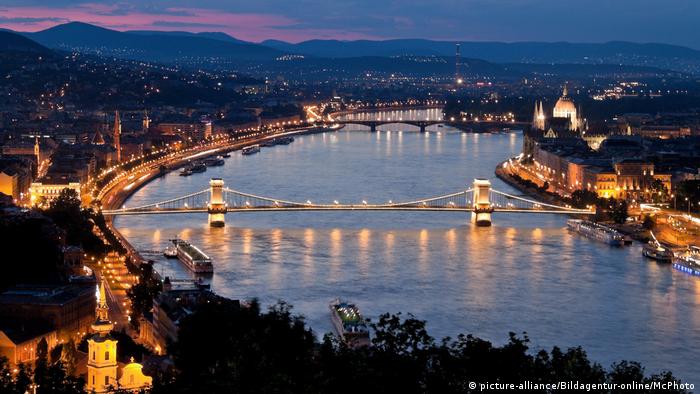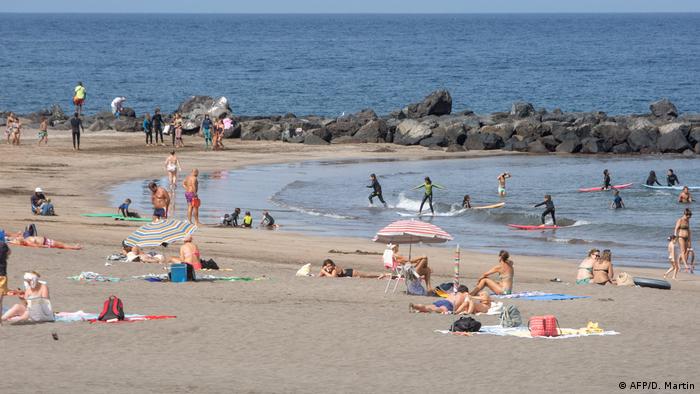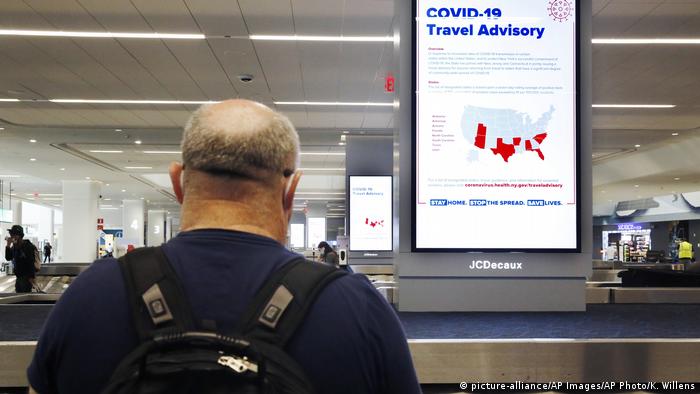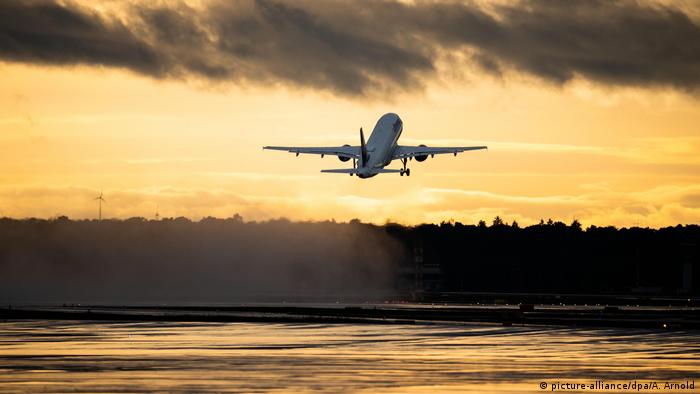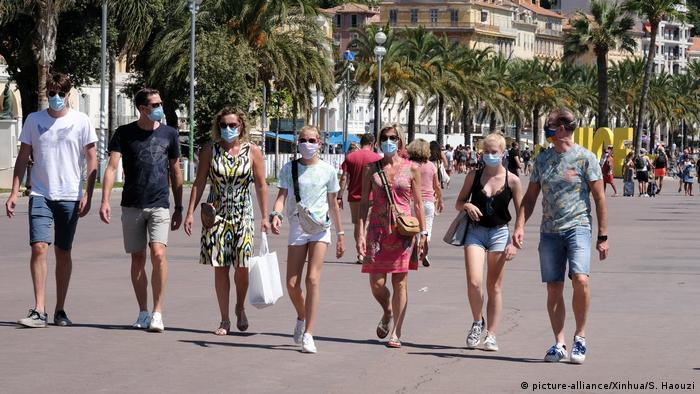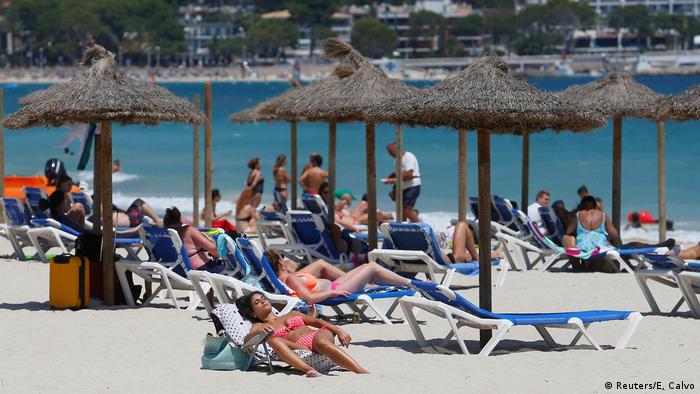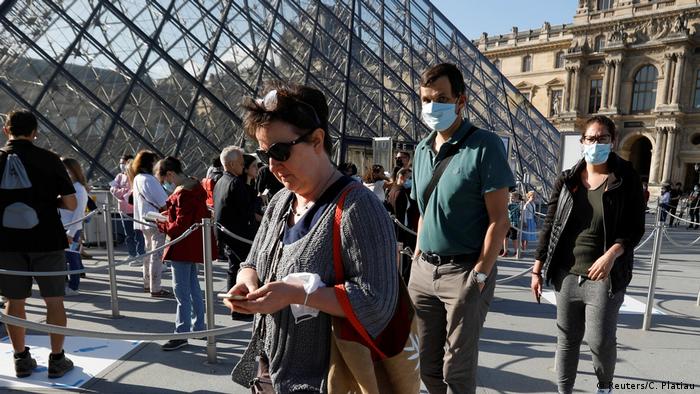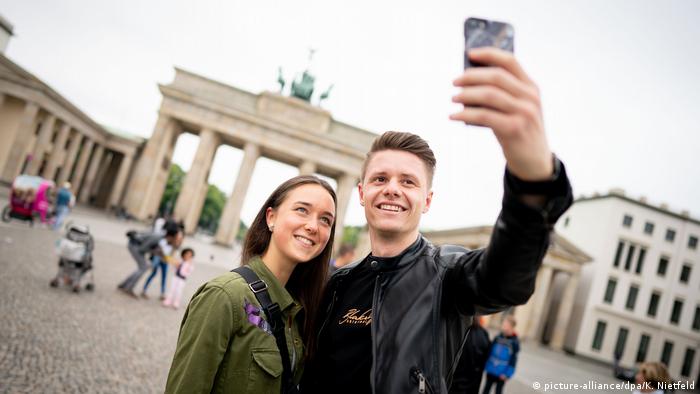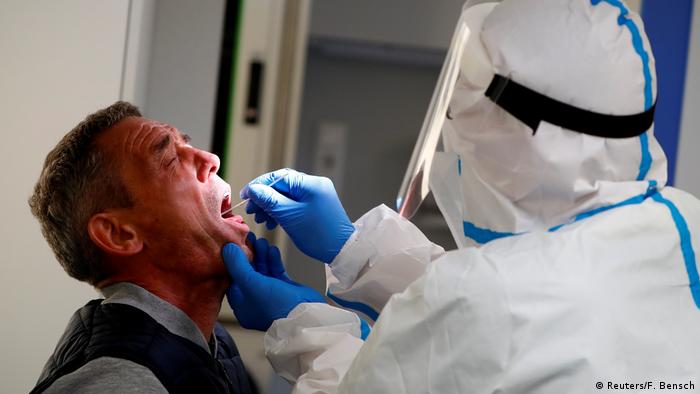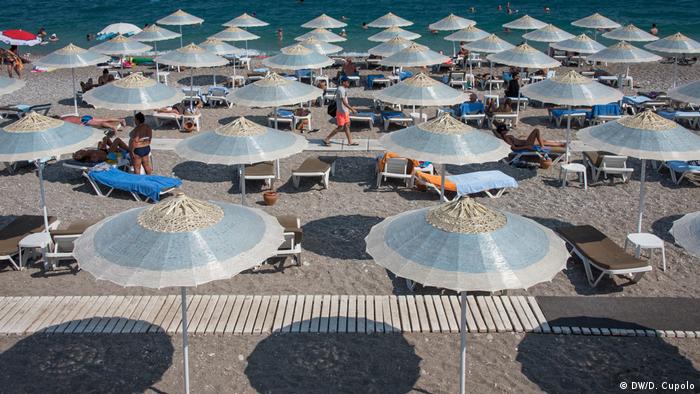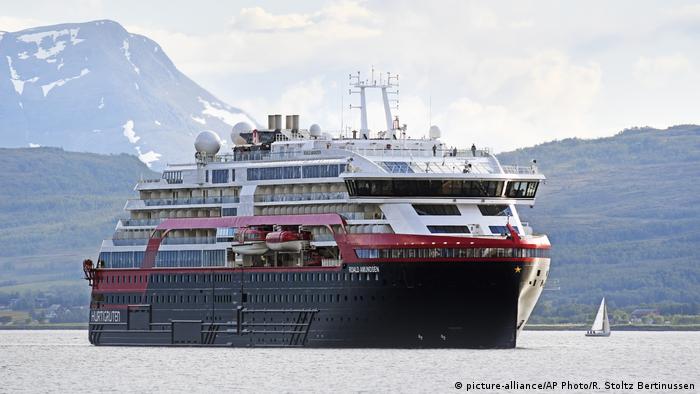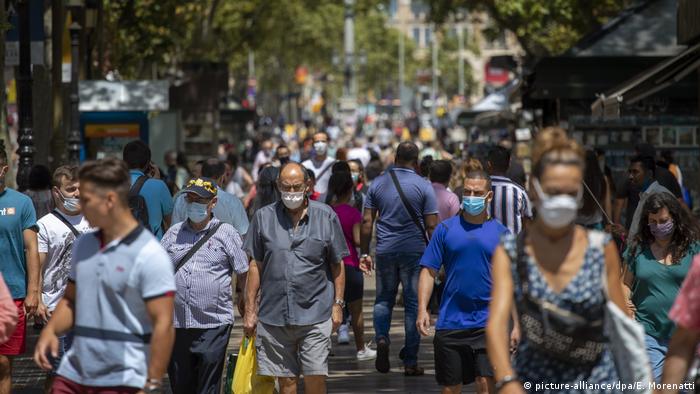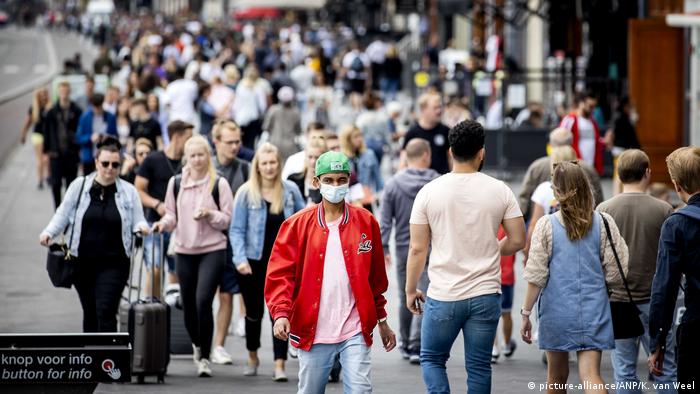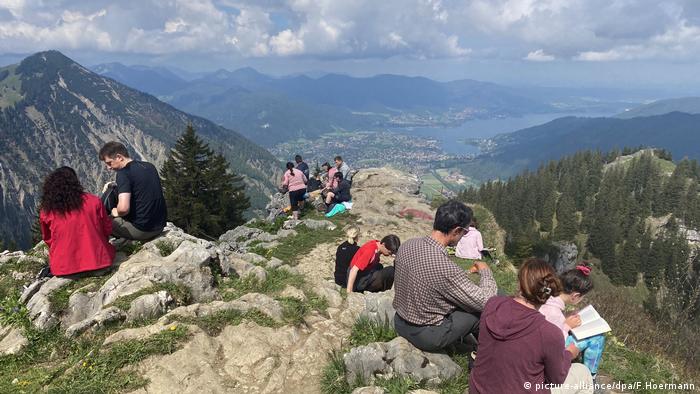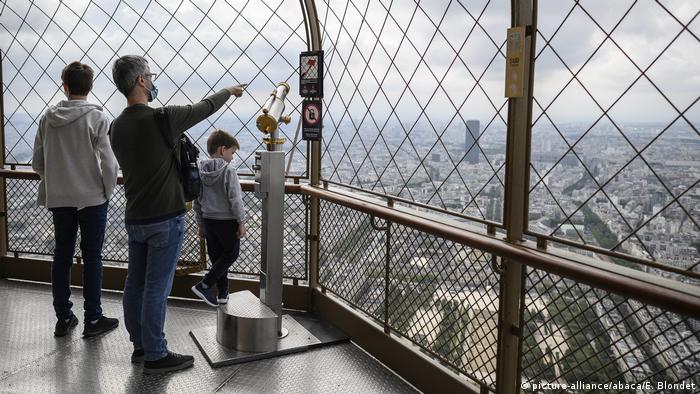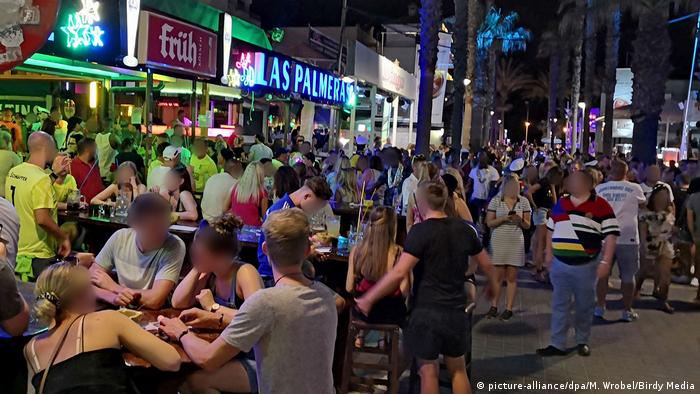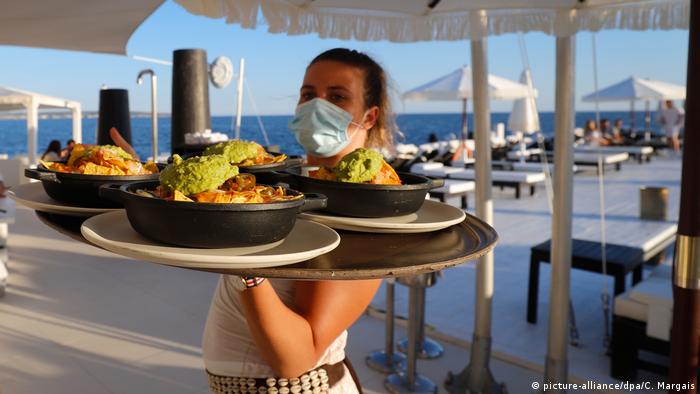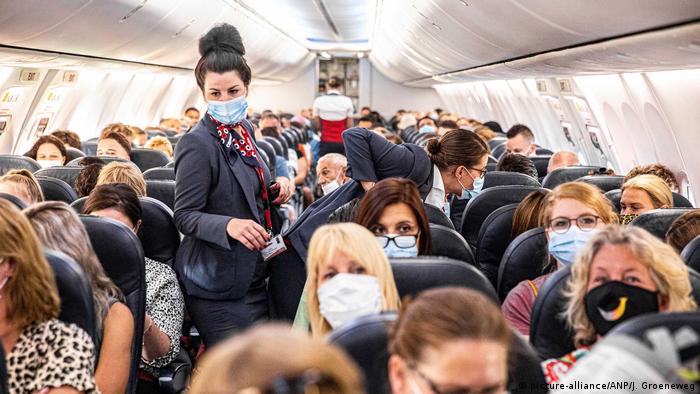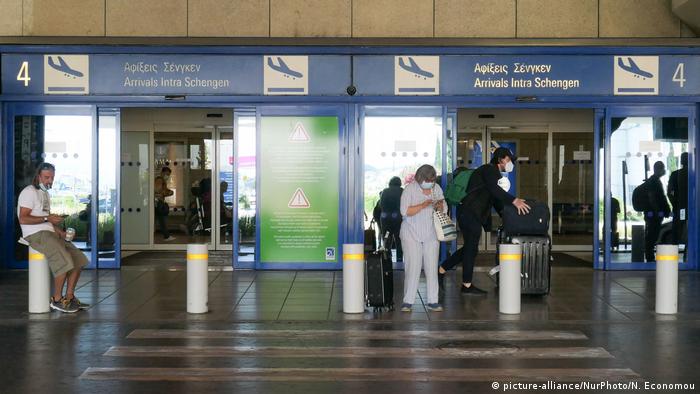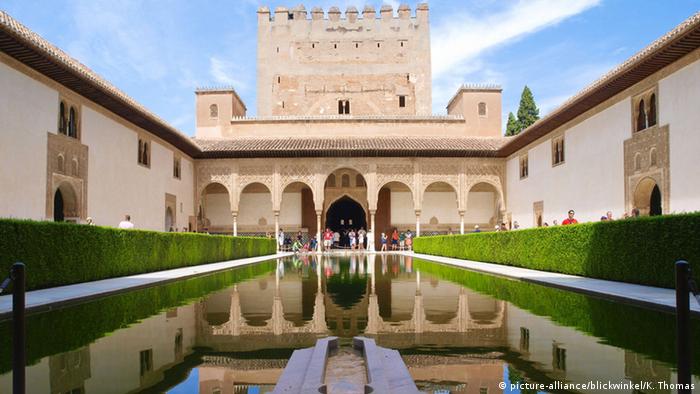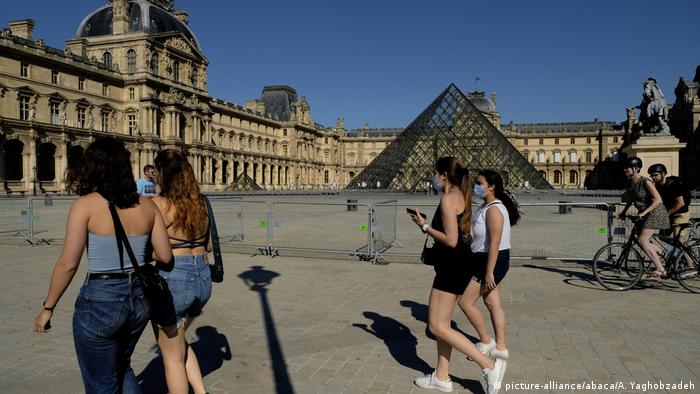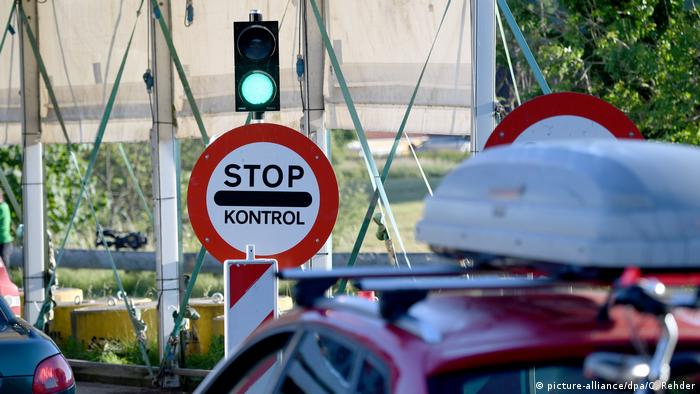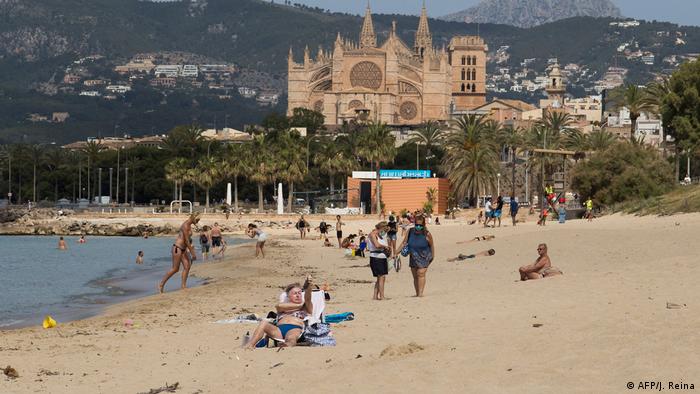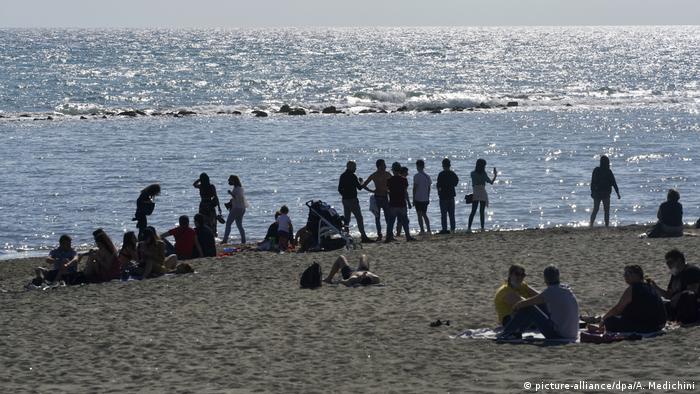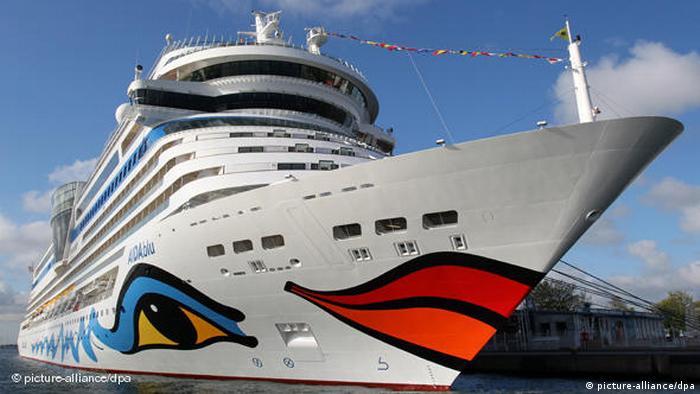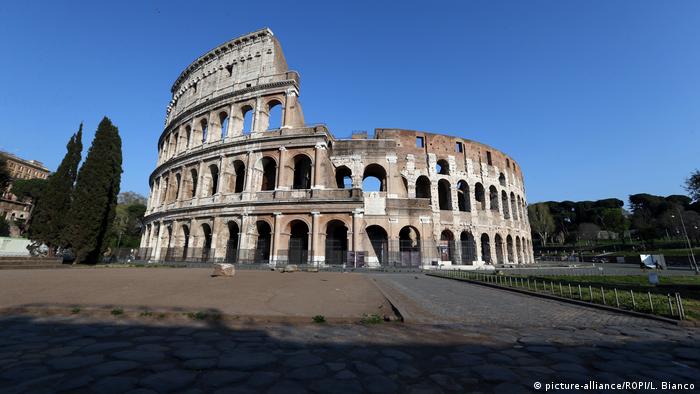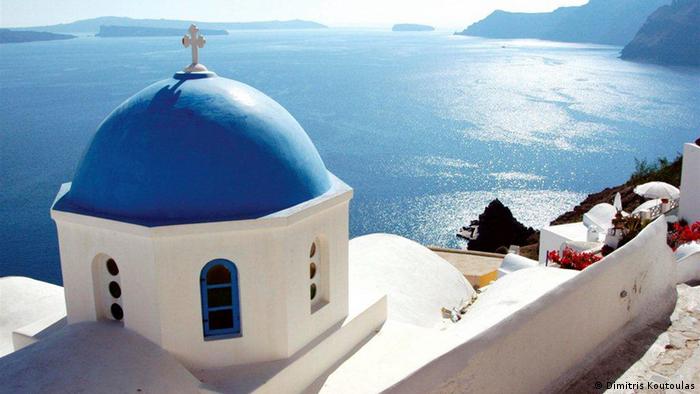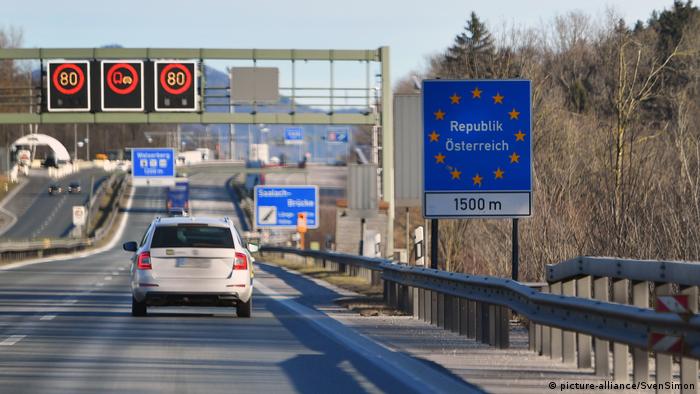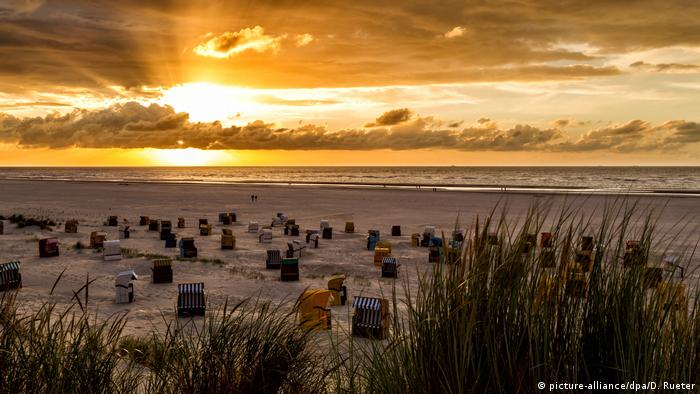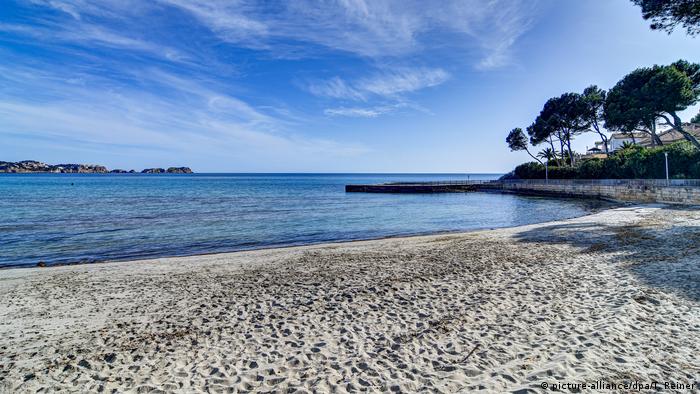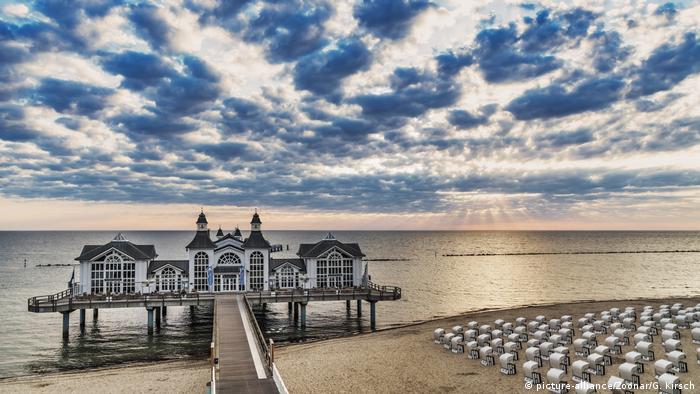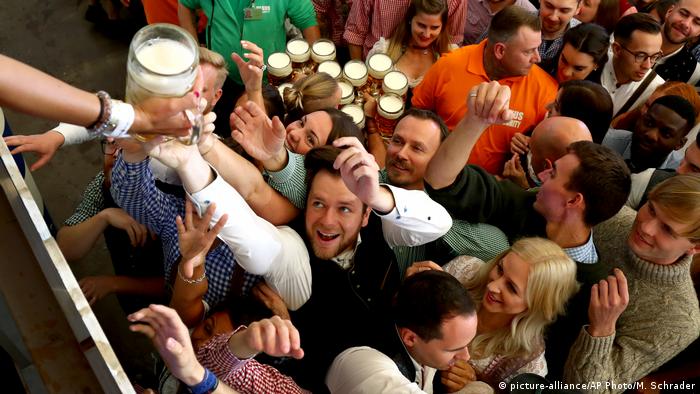French President Emmanuel Macron has announced a series of new restrictions, including shutting of bars and restaurants in some cities. Business owners and local politicians have opposed these actions.
The French government has imposed new restrictions in major cities after France reported a new record surge in daily cases.
According to statistics from Public Health France, 16,096 people tested positive for COVID-19 over the last 24 hours, making a new record.
President Emmanuel Macron announced a series of measures to curb the spread, including the closure of all bars and restaurants in Marseille, and shorter opening hours for Paris and other cities.
Public gatherings in a few cities have been limited to 10 people, and sports events or concerts can only host up to 1,000 people.
The measures have been met with opposition from several business owners and local politicians. Paris Mayor Anne Hidalgo said, "It is hard to understand: How will it prevent the spread of the virus? How will the fact that we can no longer exercise help us, while sport is an important part of keeping us healthy with strong immune systems?"
Europe
Austria hasannounced new measures ahead of the start of the ski season, including a 10 p.m. curfew in the tourist states of Tirol, Vorarlberg and Salzburg. Kurz pointed out that skiing, shopping, dining, wellness and culture events would still be available despite the pandemic.
However, visitors would not be able to take part in the popular apres-ski parties, which involve dancing, drinking, and socializing once skiing is done.
Britain recorded a record number of daily infections, with 6,634 new cases on Thursday. A second wave of infections has gripped the country, but officials said the level of testing is much higher than the first wave.
Health Secretary Matt Hancock said during an interview, "We estimate that it's under 10,000 people a day getting the disease. That's too high, but it's still much lower than in the peak." Britain has seen the highest death toll in Europe.
Americas
A Brazilian football club, Flamengo, is trying to postpone a league game after 16 players tested positive for COVID-19. The club was previously pushing for an early reopening.
Flamengo's vice president for legal affairs, Rodrigo Dunshee, said he hoped the Brazilian football confederation will agree to postpone Sunday's Brazilian championship game against Palmeiras. In June, Flamengo had joined President Jair Bolsonaro in reopening local football leagues.
Asia-Pacific
As the threat of the virus recedes, China will start allowing foreigners holding certain types of visas and residence permits to return. Foreign nationals holding valid Chinese visas and residence permits for work, personal matters and family reunions will be permitted to enter China without needing to apply for new visas, starting Monday.
Those returning must follow a 14-day quarantine and other measures to contain the spread.
The Asia-Pacific region has been the worst affected by the global downturn in tourism due to the pandemic, according to data from the United Nations tourism body.
International arrivals have dropped by 72%, and arrivals in June were down 99% year-on-year. Countries imposed travel bans as the pandemic worsened in order to contain the spread of the virus.
China, Japan, and South Korea have been the worst affected, as these countries had suspended all but essential travel. Southeast Asian countries, which heavily rely on tourism for their economy, saw arrivals fall 64%.
-
Coronavirus: The consequences for tourism
Taj Mahal reopens for tourists
India's most famous building was closed for six months, but since Monday ( September 21) it can be visited again, under strict restrictions. Only 5000 online tickets will be issued per day. There are temperature checks at the entrance. Selfies are allowed, group photos are prohibited. The Taj Mahal is a UNESCO World Heritage Site and is normally visited by 8 million people every year.
-
Coronavirus: The consequences for tourism
Germany extends travel warnings to include Budapest, Vienna, Amsterdam
The Foreign Ministry has reacted to higher numbers of coronavirus infections on September 16 by issuing further travel warnings, including Vienna and Budapest. The province of North Holland with Amsterdam as well as South Holland with the cities of The Hague and Rotterdam are also affected. New risk areas were also identified in the Czech Republic, Romania, Croatia, France, and Switzerland.
-
Coronavirus: The consequences for tourism
Historical sales losses in global tourism
Because of the coronavirus pandemic, the tourism sector has suffered a loss of 460 billion dollars (388 billion euros) from January to June, the World Tourism Organization reported in Madrid. The loss of sales was five times higher than during the international financial and economic crisis of 2009, and the total number of tourists worldwide fell by 65 percent in the first half of the year.
-
Coronavirus: The consequences for tourism
Germany issues further European travel warnings
Germany’s Foreign Office has warned against unnecessary tourism to Czech capital, Prague, and the Swiss cantons Geneva and Vaud (Vaud). This also applies to the French Mediterranean island of Corsica, the French regions Auvergne-Rhones-Alpes (around Lyon), Nouvelle-Aquitaine (around Bordeaux) and Occitania (around Toulouse) as well as more Croatian Adriatic areas, such as the city of Dubrovnik.
-
Coronavirus: The consequences for tourism
Berlin to start 'differentiated system' for travel warnings
The German government has extended its travel warning for around 160 countries through September 30. The advisory applies to "third countries" — i.e. countries that are not members of the EU or associated with the Schengen area. From October 1st, a "differentiated system" will apply, in which individual travel and safety information will be given for each country.
-
Coronavirus: The consequences for tourism
Australia's borders to stay shut into December
Australia has extended its travel restrictions for a further three months. The borders will remain closed for visitors from abroad until at least December 17. However, the government announced that domestic travel will soon be allowed for residents of the country. An exception will be the state of Victoria, with its metropolis Melbourne, for which a lockdown has been in place since early July.
-
Coronavirus: The consequences for tourism
Germany declares all of Spain a virus hot spot
Germany has added the Canary Islands to its list of coronavirus hotspots. That means ALL of Spain is now considered a high-risk area for German travellers. Infection rates have surged across Spain since lockdown measures were lifted in June.
-
Coronavirus: The consequences for tourism
New York observation deck "The Edge" reopens
From Wednesday (Sept. 2), visitors can again enjoy the glass sky deck on the 100th floor of the "30 Hudson Yards" skyscraper in western Manhattan. Only a few days after its opening, the viewing platform had been closed in March because of the coronavirus pandemic. At 335 meters (1099 ft.), "The Edge" is considered the highest publicly accessible outdoor viewing terrace in the western world.
-
Coronavirus: The consequences for tourism
Germany extends global travel warning
The German government has extended the travel warning for around 160 countries outside the European Union by two weeks until September 14. A spokeswoman for the German Foreign Ministry explained the move on Wednesday (Aug 26) with rising coronavirus infection rates. "The situation will not relax sufficiently by mid-September to be able to lift the worldwide travel warning," she said.
-
Coronavirus: The consequences for tourism
Travel warnings for Paris and Côte d'Azur
On Monday evening (Aug 24) the German government issued a travel warning for the greater Paris area and large parts of the French Mediterranean coast becuase of the increased coronavirus infection rates. The regions of Île-de-France and Provence-Alpes-Côte d'Azur have also been included in the updated list of risk areas compiled by the Robert Koch Institute.
-
Coronavirus: The consequences for tourism
First Mediterranean cruise has set sail
With 2,500 instead of 6,000 passengers, the MSC Grandiosa left the port of Genoa on August 16. Stops on the seven-day voyage include Naples, Palermo and Valletta. Passengers and crew were tested for coronavirus before boarding, and body temperature is to be checked on a daily basis. Rival cruise company Costa will not be offering Mediterranean cruises again until September.
-
Coronavirus: The consequences for tourism
Germany declares most of Spain high-risk area
Germany's health and interior ministries have agreed that all of Spain — apart from the Canary Islands — is now a high-risk area due to a surge in cases. Spain said it was closing night clubs across the country. Restaurants, bars and similar venues would need to close by 1 a. m. and would not be allowed to take in new guests after midnight.
-
Coronavirus: The consequences for tourism
Paris is again a high-risk area
France has declared Paris and the Bouches-du-Rhone department on the Mediterranean coast around Marseille high-risk coronavirus zones. The measure is in response to a sharp rise in COVID-19 infections over the past two weeks.
-
Coronavirus: The consequences for tourism
COVID-19 deals tourism in Berlin a heavy blow
In the first six months of 2020, 59% fewer tourists came to Berlin than in the previous year. The Statistics Office said on August 10 that 2.7 million guests had visited Berlin, the lowest number since 2004. The slump was even worse for foreign tourists: two thirds stayed away. Since June, the figures have been recovering and are at 30 to 40% of the previous year.
-
Coronavirus: The consequences for tourism
Compulsory COVID-19 tests on entry into Germany
Anyone entering Germany from a high-risk area must take a coronavirus test from August 8, after an order by Health Minister Jens Spahn. Currently, many countries are classified as risk areas, including the United States and Brazil. In the European Union, Luxembourg, the Belgian region of Antwerp and the Spanish regions of Aragon, Catalonia and Navarre were risk areas as of early August.
-
Coronavirus: The consequences for tourism
Germany lifts travel warning for four Turkish regions
Germans can again travel to Turkey. The German government has partially lifted the travel warning for the four popular coastal provinces of Antalya, Izmir, Aydin and Mugla. Travelers must be tested for coronavirus before returning to Germany. The costs of between €15 and 30 must be paid by the traveler. Turkey is one of the most popular holiday destinations for Germans.
-
Coronavirus: The consequences for tourism
Setback for cruise holidays
Norwegian cruise operator Hurtigruten has stopped all cruises on August 3 until further notice after an outbreak of the coronavirus on one of its ships. At least 40 passengers and crew members on the Roald Amundsen tested positive for COVID-19. Meanwhile, German cruise line Aida Cruises has also postponed its planned restart due to the lack of necessary permits.
-
Coronavirus: The consequences for tourism
Nepal reopens Mount Everest for climbers amid COVID-19
Despite coronavirus uncertainty, Nepal has reopened Mount Everest for the autumn trekking and climbing season. To boost the struggling tourism sector the government will permit international flights to land in the country from August 17. The Himalayan country shut its borders in March just ahead of the busy spring season when hundreds of mountaineers usually flock to the country.
-
Coronavirus: The consequences for tourism
German Foreign Office advises against travel to Barcelona
On July 28, the German Foreign Office issued an advisory opinion against non-essential tourist trips to the Spanish regions of Aragon, Navarre and Catalonia, citing the high number of COVID-19 infections as well as local restrictions. The Catalan regional government in Barcelona has said it regrets the decision, saying the regional government was acting responsibly while trying to protect lives.
-
Coronavirus: The consequences for tourism
Amsterdam wants fewer weekend visitors
Concerned over a possible second wave of coronavirus, Amsterdam has requested that tourists not visit the Dutch capital on weekends. Potential day-trippers should come between Monday and Thursday, the city said on July 23. The tourist influx has swelled to such a degree that recommended social distancing of 1.5 meters between people is currently not possible in the city center.
-
Coronavirus: The consequences for tourism
Crowd management in alpine idyll
In order to manage tourist throngs amid the pandemic, Bavaria's Economy Minister Hubert Aiwanger is planning a live digital guiding system for visitors. Clogged streets, wild campers and overcrowding on hiking trails in the Alps — this brings popular regions such as Lake Tegernsee (photo) to their limits. The live update system is primarily intended to redirect day-trippers to less full areas.
-
Coronavirus: The consequences for tourism
Eiffel Tower summit open again
Visitors to Paris can finally visit the top of the Eiffel Tower again — the third level of the world-famous landmark opened on July 15. The number of tickets available is limited, in order to assure social distancing measures between visitors. Distancing is also in effect at the Disneyland Paris amusement park, which is opening its doors again after a four-month obligatory closure.
-
Coronavirus: The consequences for tourism
End of the party
Due to illegally held parties, Mallorca has ordered the forced closure of restaurants at Ballermann and Magaluf, resort areas visited by German and British tourists. The regulation came into effect on July 15 for two months. The behavior of a few vacationers and local owners should not jeopardize the huge efforts to fight the pandemic, said Balearic Tourism Minister Iago Negueruela.
-
Coronavirus: The consequences for tourism
Stricter face mask rules on Balearic Islands
On Mallorca and the other Balearic Islands, the regulations for wearing face masks have been tightened. To prevent the spread of the coronavirus, mouth and nose protection must be worn from July 13 in all enclosed public spaces as well as outdoors, whenever it is possible to encounter other people. On the beach, at the pool and during sports, however, masks are still not mandatory.
-
Coronavirus: The consequences for tourism
Flights overshadowed by fear
Holiday flights within Europe are on the move again, with passengers sitting close together. According to an opinion poll by the International Air Transport Association (IATA), 62% of those questioned are afraid of being infected by passengers in the next seat. This was identified by IATA as the main reason for the decline in willingness to travel, which is now only 45%.
-
Coronavirus: The consequences for tourism
EU relaxes entry restrictions
Starting from July 1, people from third countries with low infection rates may enter the EU again as regular travelers. These countries are Algeria, Australia, Canada, Georgia, Japan, Morocco, Montenegro, New Zealand, Rwanda, Serbia, South Korea, Thailand, Tunisia and Uruguay. China will only be considered if it also lifts its entry restrictions for Europeans.
-
Coronavirus: The consequences for tourism
COVID-19 test center opened at Frankfurt airport
A coronavirus test center has been in operation at Frankfurt airport since June 29. Here, passengers both departing and arriving can be tested to avoid quarantine. The standard procedure, in which the results are available as a download within six to eight hours, costs €59. Around 300 tests can be performed per hour.
-
Coronavirus: The consequences for tourism
World famous Alhambra in Granada opens again
The Alhambra Castle in Granada in southern Spain opened its doors to tourists again on June 17. Initially, only 4,250 visitors were admitted at the same time — only half as many as usual. In addition, masks are mandatory. The Alhambra is considered the most important testimony to Arab architecture in Europe and is a World Heritage site.
-
Coronavirus: The consequences for tourism
'Re-open EU': A website with travel rules for Europe
Entry regulations, masks, quarantine? The new EU overview website "reopen.europa.eu" provides information on the coronavirus rules of individual EU countries — and in 24 languages. Tourists can enter their destination country on the website and find out about regulations that apply there. So far, the site contains information on 27 EU countries and is to be continuously updated.
-
Coronavirus: The consequences for tourism
Germany's borders are open again
During the night of June 15, the federal police ended the border controls that had been introduced three months ago due to the coronavirus crisis. Complete freedom of travel between Germany and its neighboring countries is back in effect. At the same time, the Foreign Office's travel warnings for 27 European countries ended.
-
Coronavirus: The consequences for tourism
German government extends worldwide travel ban
The beaches of the world people dream of, like here on Ko Phi Phi in Thailand, will have to do without German tourists. The German government has extended the travel warning for tourists due to the coronavirus pandemic for more than 160 countries outside the EU until August 31. However, exceptions can be made for individual countries where the spread of the virus has been sufficiently contained.
-
Coronavirus: The consequences for tourism
Tourist pilot project launched on Mallorca
Some 6,000 Germans will be the first foreign tourists to be allowed to travel to the Balearic Islands from June 15. According to Spanish media, the pilot project is intended to test the security precautions at airports and hotels before all of Spain opens its borders on July 1. Germany was chosen because the epidemiological situation there is similar to that on the Balearic Islands.
-
Coronavirus: The consequences for tourism
Italy reopened for Europeans
Starting on June 3, tourists from Europe have been allowed to enter Italy again, the country that was one of the worst hit by the coronavirus pandemic worldwide. A two-week quarantine for travelers from Europe was no longer required. This should save the travel season. Italians will again be able to move freely throughout the country and travel to other regions.
-
Coronavirus: The consequences for tourism
Aida cancels cruises until end of July
The 14 cruise ships of the German Rostock-based shipping company Aida Cruises will remain in port until July 31. In many holiday destination countries the regulations for international tourism were still being discussed, the company announced. The Italian shipping company Costa also extended the cruise suspension for its fleet until July 31.
-
Coronavirus: The consequences for tourism
Colosseum and other sights in Italy open again
Rome's 2,000-year-old landmark could finally be visited again from June 1, and the Vatican Museums also reopened on that day. Ancient Pompeii, south of Naples at the foot of Mount Vesuvius, welcomed visitors early, but only those from within the country. Foreign tourists had to wait until June 3 to visit the ancient sites.
-
Coronavirus: The consequences for tourism
Tourism on Greek islands restarts
From May 25, Greece's islands were accessible again by plane and ferry for domestic tourists. Taverns, bars and cafes reopened nationwide. Ferries were to sell only 50% of their tickets, and taverns were only allowed to occupy half of their tables. The list of countries from which foreign tourists can enter Greece without a two-week quarantine was set to be announced at the end of May.
-
Coronavirus: The consequences for tourism
Austria reopens border to Germany
The Austrian government has announced that the border with Germany will be opened on June 15. Tourism in Austria has been effectively suspended due to the coronavirus pandemic. On May 29, hotels and other accommodation in Austria will be allowed to reopen. Austrian tourism is heavily dependent on guests from Germany.
-
Coronavirus: The consequences for tourism
Start of the season on the North Sea Islands
Borkum, Juist (photo) and the other East Frisian islands are happy to be able to greet tourists again, even if it's a limited surge of visitors. Since May 11, overnight stays in holiday apartments and camping sites throughout Lower Saxony have been allowed again. Holidaymakers must stay at least one week. However, day tourists and hotel overnight stays are still prohibited.
-
Coronavirus: The consequences for tourism
Will travel within Europe soon be possible again?
Holidaymakers might also be able to travel to the Balearic or Greek Islands in summer. "If there are very few new infections there and the medical care works, one could also think about a summer holiday in those places", the government's commissioner for tourism, Thomas Bareiss, told the Tagesspiegel newpaper. Long-distance travel, however, is likely to be canceled this summer.
-
Coronavirus: The consequences for tourism
Holiday season at the Baltic Sea to start
Mecklenburg-Western Pomerania is the first federal state to reopen to tourists from all over Germany: From May 25th they can again stay in hotels, guest houses and holiday homes. 60 percent of the bed capacity will be released for this purpose. This means that the tourist season can start with the Whitsun holidays in popular holiday regions like the Baltic Sea and the Mecklenburg Lake District.
-
Coronavirus: The consequences for tourism
Germany extends worldwide travel warning
Germany extended on Wednesday (April 29) its worldwide travel warning due to the coronavirus crisis to at least June 14. The Federal Foreign Office said that "severe and drastic restrictions in international air and travel traffic and worldwide entry restrictions, quarantine measures and restrictions on public life in many countries can still be expected."
-
Coronavirus: The consequences for tourism
Oktoberfest in Munich canceled
Oktoberfest has been canceled this year due to the coronavirus pandemic. Bavaria's premier Markus Söder and Munich Mayor Dieter Reiter announced the decision on April 21."It pains us, and it is a great pity," said Söder. But in times of the coronavirus, the danger of infection at the folk festival, which attracts about 6 million visitors annually, would just be too great.
Author: Andreas Kirchhoff, Susan Bonney-Cox
tg/stb (AFP, AP, dpa, Reuters)

